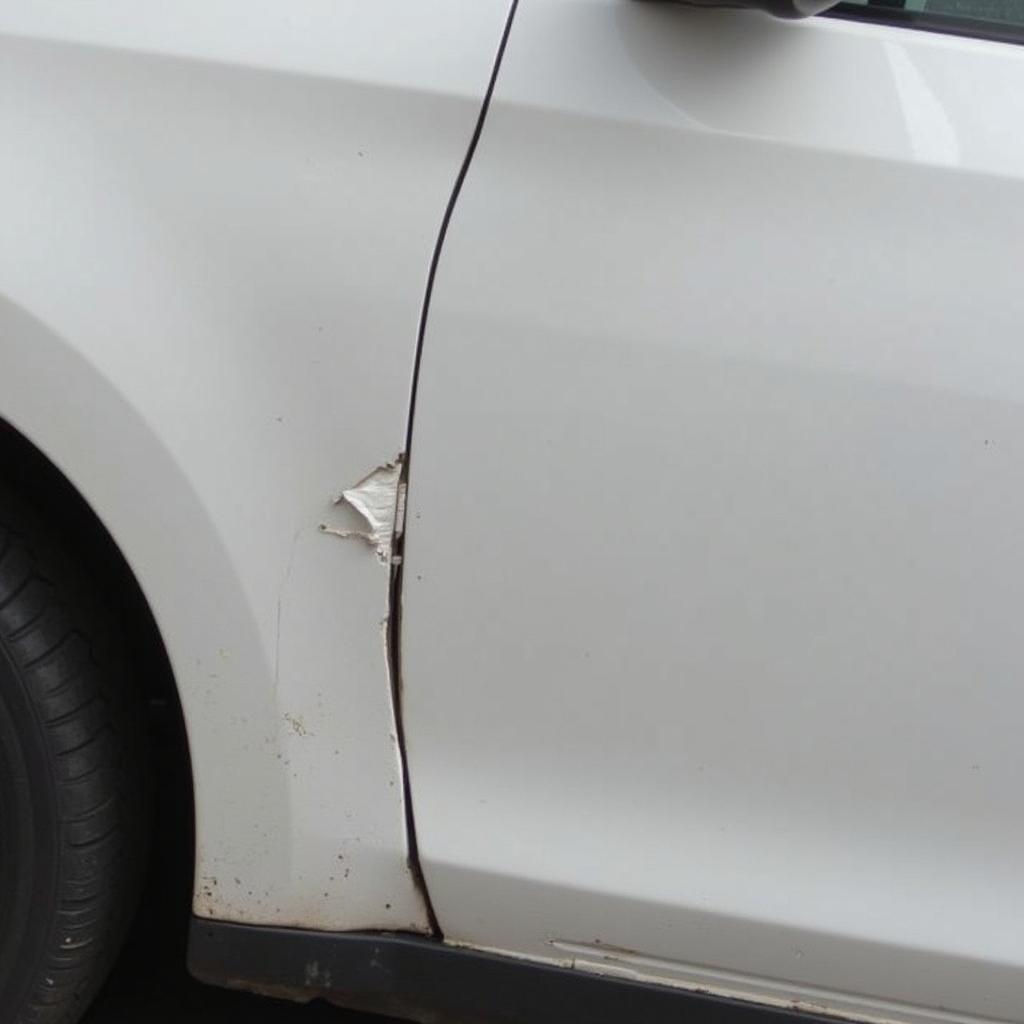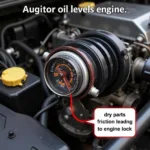Does Car Insurance Cover Bad Repairs? It’s a frustrating situation: you’ve had your car repaired after an accident, but the work is subpar. Now you’re left wondering who’s responsible for fixing the shoddy workmanship. This article dives into the complexities of insurance coverage for bad repairs, helping you understand your rights and navigate the process effectively.
After a car accident, getting your vehicle back to its pre-accident condition is a priority. But what happens when the repairs are poorly executed? Can you finance car repairs if your insurance doesn’t cover the cost of fixing a botched repair job? Understanding your insurance policy and knowing the right steps to take can be crucial in these situations. Let’s explore the different scenarios and options available to you.
When Does Insurance Cover Bad Repairs?
Your insurance company might cover bad repairs under certain circumstances. For example, if the repairs were carried out by a shop within their approved network and the workmanship is demonstrably faulty, they may be liable. This is especially true if the original damage was related to an insured event, such as a collision. However, policies differ, so it’s crucial to review yours carefully. Look for clauses related to guaranteed repairs or workmanship warranties offered by the repair shop.
If the damage was caused by something not covered by your policy, such as general wear and tear, the insurance company is unlikely to cover the cost of rectifying a bad repair job. Similarly, if you opted for a cheaper, non-approved repair shop against your insurer’s recommendation, you might be on your own.
What to Do if You Suspect Bad Repairs
If you suspect the repairs on your vehicle are inadequate, act promptly. Document everything: take photos and videos of the flawed workmanship, gather any paperwork related to the repair, and keep a detailed log of your communications with the repair shop and your insurance company. Don’t delay in contacting both parties. Notify the repair shop of the issues and provide them with the opportunity to rectify the situation. Simultaneously, inform your insurance company about the problem and the steps you’ve taken.
 Example of a Bad Car Repair: Dent and Misaligned Panel
Example of a Bad Car Repair: Dent and Misaligned Panel
Negotiating with the Repair Shop and Insurance Company
Negotiating with the repair shop and your insurance company requires a clear and assertive approach. Present your documented evidence and explain your concerns clearly. Be prepared to negotiate a solution that ensures the repairs are completed correctly. This might involve the repair shop redoing the work or a different approved shop taking over. Remember to keep records of all communication throughout this process. If negotiations stall, consult with an attorney specializing in auto insurance claims to understand your legal options.
 Negotiating a Car Repair Insurance Claim
Negotiating a Car Repair Insurance Claim
What if the Repair Shop Refuses Responsibility?
If the repair shop refuses to acknowledge the faulty work, your insurance company might step in, especially if the shop is within their network. However, if the damage wasn’t related to a covered event or if you chose a non-approved shop, your options might be limited. In such cases, you might need to explore legal avenues. Small claims court could be an option for recouping the cost of correcting the bad repairs. Consult with an attorney to assess the viability of legal action.
Knowing the cost of repairing specific car parts can be beneficial when navigating these situations. For instance, understanding what is the cost of repairing car dynamo can help you assess the reasonableness of the repair quote. Similarly, exploring financing options for car repairs can help you manage unexpected expenses.
You can find more information about financing car repairs here: can you finance car repairs. This resource can be valuable if you need to cover the cost of fixing bad repairs not covered by insurance. For specific repair costs, you might find this article helpful: what is cost of repairing car dynamo.
Preventing Bad Repairs in the First Place
Prevention is always better than cure. Choosing a reputable repair shop, preferably one recommended by your insurance company, can significantly reduce the risk of encountering bad repairs. Don’t hesitate to ask questions about their experience, certifications, and warranties. Thoroughly inspect the repaired vehicle before accepting it back from the shop.
Conclusion
Dealing with bad car repairs can be a headache. Understanding your insurance policy, documenting the issues, and communicating effectively with the repair shop and your insurance company are crucial for resolving the situation favorably. Does car insurance cover bad repairs? It depends on the specifics of your policy and the circumstances surrounding the repair. Proactive steps, such as choosing a reputable repair shop and carefully inspecting the completed work, can help minimize the risk of encountering this frustrating scenario.
FAQ
- What should I do if I’m not satisfied with the repair work?
- Can I choose my own repair shop?
- What if the repair shop goes out of business?
- How long does the repair shop’s warranty typically last?
- Is it worth involving a lawyer for minor repair issues?
- Does my insurance premium increase after claiming for bad repairs?
- What if the bad repair causes further damage to my car?
Need help with car diagnostics or repairs? Contact us via WhatsApp: +1(641)206-8880, Email: [email protected]. We have a 24/7 customer support team.


